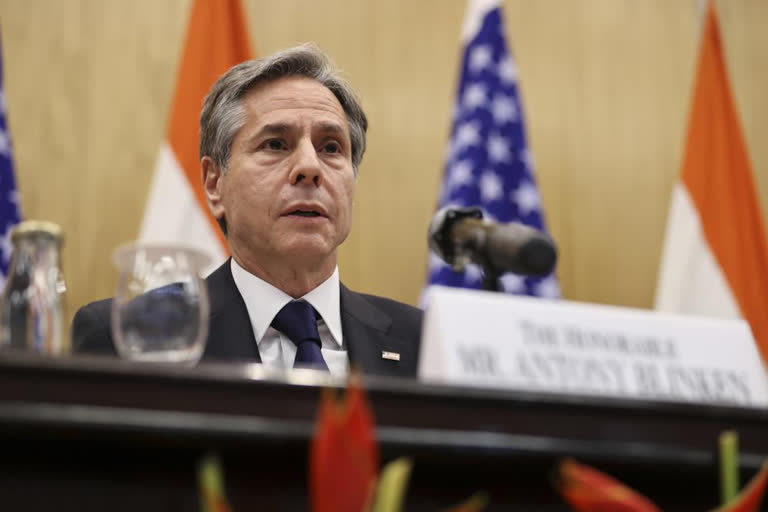New Delhi:The official programme schedule of visiting US Secretary of State Anthony Blinken in the national capital on Wednesday packed a surprise that escalated the US’s moves on Tibet to another level which may attract China’s ire. Besides scheduling meetings with the Indian Prime Minister Narendra Modi, foreign minister Dr S Jaishankar and National Security Adviser Ajit Doval later on Wednesday, Blinken’s first meeting for the day was with Kasur Ngodup Dongchung, the director of the Bureau of the Dalai Lama in Delhi.
The next meeting with civil society representatives included Geshe Dorji Damdul, director of Tibet House in Delhi. The other attendees in the meeting included constitutional lawyer Menaka Guruswamy, Inter-Faith foundation founder Khwaja Iftikhar Ahmed, and representatives of the Ramakrishna Mission, Baha’i, Sikh and Christian NGOs. The primacy of Tibetan representatives in the two meetings by Secretary Blinken reflects the US’s concerns on deciding the successor to the Dalai Lama, the spiritual head of Tibetan Buddhism who is based in Mcleodganj in India’s Himachal Pradesh.
Read:|Jaishankar, Blinken discuss strengthening Quad, countering terrorism
Besides Taiwan and its treatment of Uighurs in Xinjiang, China is very sensitive to any developments on the issue of Tibet. The development follows an increasing focus on the issue of succession of the Dalai Lama, 86, who is the 14th in his line. In 2011, China claimed the sole right to approve and appoint the next Dalai Lama who will be chosen by picking lots from a golden urn in Lhasa.
Calling China’s position “an outrageous abuse of religious freedom”, India and the US believe that the Chinese government should have no role in the succession process of the Dalai Lama. The stand of the Central Tibetan Administration (CTA) is that choosing the next Dalai Lama is the prerogative of the current Dalai Lama who is based in India and that Beijing can have no say in the matter.
Read:|India, US together will bring this pandemic to an end: Blinken
